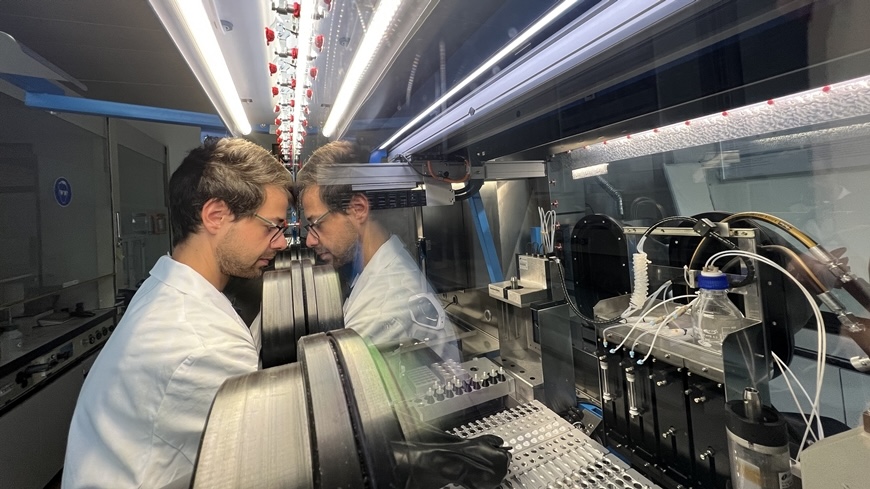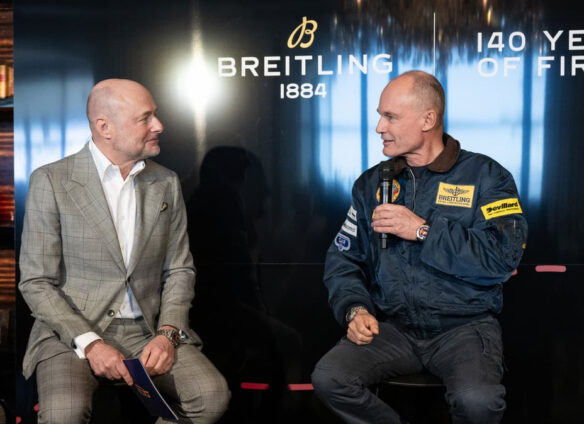Tokyo (SCCIJ) – The Swiss Federal Laboratories for Materials Science and Technology (Empa) are developing a robot platform to speed up the research for innovative energy storage by factor 10. The platform named “Aurora” aims to make European battery research and development competitive on an international level.

Empa researcher Enea Svaluto-Ferro works at the robot platform Aurora for battery materials (© Empa).
More research speed
The world urgently needs new types of energy storage. Developing completely new concepts for batteries and exploring their potential is currently a lengthy process, as Corsin Battaglia, head of Empa’s Materials for Energy Conversion laboratory in Dübendorf and professor at the Swiss Federal Institute of Technology Zurich, emphasizes: “Our goal is to accelerate this process,” he says.
This acceleration is currently manifesting itself in the form of the Aurora robot platform, which is to take over the fully automated and, in the future, autonomous material selection, assembly, and analysis of battery cells in the laboratory.
As part of the European Materials Acceleration Platform, which is being set up within the European Battery2030+ project BIG-MAP, the aim is make the current development process ten times faster. The robotic platform is currently being further developed in the Empa laboratories together with the company Chemspeed Technologies AG.
Driving innovation
The time-consuming and error-prone steps in the innovation process are now being automated using Aurora. “While the robot weighs, doses, and assembles the individual cell components with constant precision, initiates and completes charging cycles precisely, and performs other repetitive steps, researchers can use the generated data to drive the innovation process forward,” says Empa researcher Enea Svaluto-Ferro.
Currently, Aurora is learning to work autonomously. Its artificial intelligence could create mathematical models and decide which experiments should be carried out next and which materials and components are particularly promising candidates for the desired application. The background: A search is currently underway worldwide for new battery materials that are inexpensive, readily available, and do not entail any technical disadvantages.
Since the platform can be used independently of materials, battery chemistry, and generation, it could not only help to improve lithium-ion batteries but also to develop alternative sodium-ion batteries or batteries with a self-healing mechanism in the future, Svaluto-Ferro said. “Aurora can also bring prototypes from our labs, such as salt water batteries or solid-state batteries, to market more efficiently and quickly,” says lab head Battaglia.
Text: Empa (Editing by SCCIJ)





























